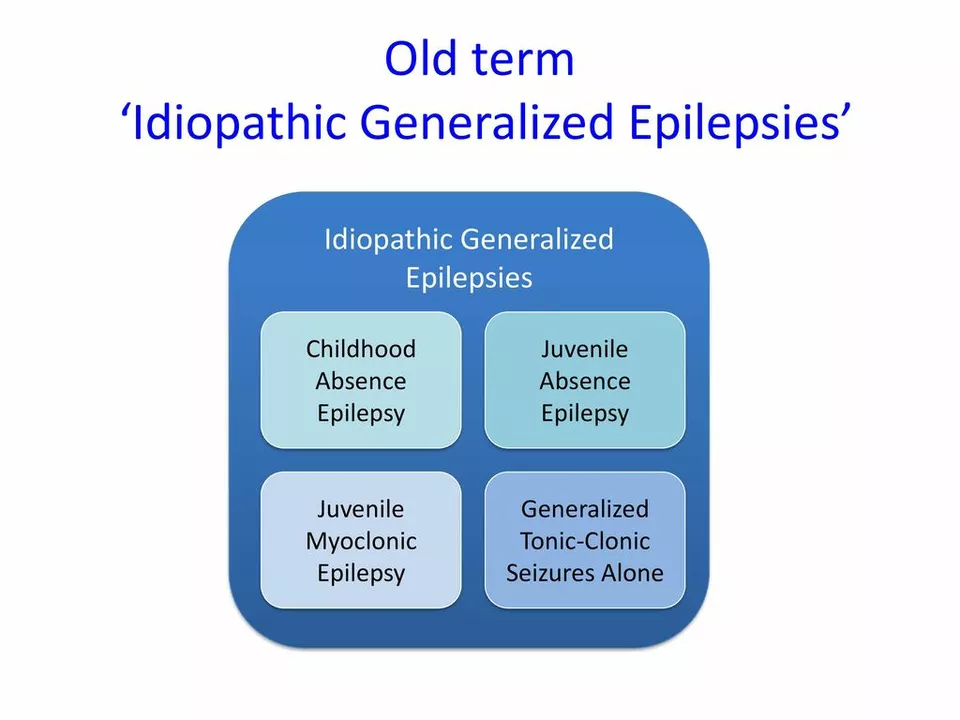Understanding Myoclonic Seizures
Myoclonic seizures are a type of seizure characterized by brief, involuntary muscle jerks. These jerks can affect one or multiple parts of the body and can occur in isolation or as part of a more complex seizure. Myoclonic seizures can result from various neurological conditions, including epilepsy, brain injury, and metabolic disorders. It's essential to understand the causes, symptoms, and treatments of myoclonic seizures to support those affected and to raise awareness about this condition. By educating ourselves and others, we can work together to improve the lives of people living with myoclonic seizures.
Recognizing the Signs and Symptoms
Although myoclonic seizures may present differently in each individual, there are some common signs and symptoms to watch for. These can include sudden, brief muscle jerks, loss of muscle tone, and a temporary loss of consciousness. These seizures often occur in clusters and are typically brief, lasting only a few seconds. In some cases, myoclonic seizures may be associated with other seizure types, such as tonic-clonic or absence seizures. By recognizing these signs and symptoms, we can better support individuals experiencing myoclonic seizures and help them seek appropriate medical care.
Diagnosis and Treatment Options
Diagnosing myoclonic seizures often involves a thorough medical evaluation, including a detailed history, physical examination, and diagnostic testing, such as an electroencephalogram (EEG). The treatment plan for myoclonic seizures may vary depending on the underlying cause and the severity of the seizures. Common treatment options include anticonvulsant medications, lifestyle modifications, and, in some cases, surgery. It's essential for individuals with myoclonic seizures to work closely with their healthcare team to develop a comprehensive treatment plan tailored to their specific needs and circumstances.
Educating the Public
Raising awareness about myoclonic seizures is a crucial step in advocacy efforts. By educating the public about the signs, symptoms, and potential causes of myoclonic seizures, we can help reduce stigma and promote understanding. This can be achieved through various channels, including social media, public speaking engagements, and community events. By sharing accurate, evidence-based information about myoclonic seizures, we can foster a more inclusive and supportive environment for those affected by this condition.
Connecting with Support Groups
Support groups can provide invaluable resources for individuals living with myoclonic seizures and their families. These groups offer emotional support, practical advice, and opportunities to connect with others who share similar experiences. By participating in support groups, individuals with myoclonic seizures can gain new perspectives, learn coping strategies, and develop a sense of community. Support groups can be found both locally and online, making it easy to connect with others and access vital resources.
Working with Healthcare Providers
Advocacy efforts should also involve collaboration with healthcare providers, who play a critical role in the diagnosis and treatment of myoclonic seizures. By working together, patients, families, and healthcare providers can develop comprehensive care plans that address the unique needs of each individual. Additionally, healthcare providers can serve as valuable sources of information and support, helping to educate both patients and the broader community about myoclonic seizures.
Advocating for Research Funding
Research is essential for advancing our understanding of myoclonic seizures and developing new treatment options. By advocating for increased research funding, we can support the scientific community in their efforts to better understand the causes, mechanisms, and potential treatments for myoclonic seizures. This can be achieved by contacting government representatives, participating in fundraising events, and raising awareness about the importance of research in improving the lives of those affected by myoclonic seizures.
Empowering Individuals and Families
One of the most powerful aspects of advocacy is empowering individuals with myoclonic seizures and their families to take an active role in their healthcare journey. By providing resources, support, and education, we can help individuals and families become confident advocates for their own health and well-being. This includes encouraging them to ask questions, seek out reliable sources of information, and connect with others who share their experiences.
Making a Lasting Impact
Through advocacy efforts, we can make a real and lasting difference in the lives of individuals with myoclonic seizures and their families. By raising awareness, promoting research, and supporting those affected by this condition, we can help create a more inclusive, understanding, and supportive world for everyone living with myoclonic seizures.






Bobby Marshall
May 6, 2023 at 16:32
This is actually really well put together. I’ve got a cousin who’s had myoclonic seizures since she was 12, and honestly, most of what I’ve seen online is either terrifyingly vague or just straight-up wrong. You nailed the balance between medical accuracy and human understanding. <3